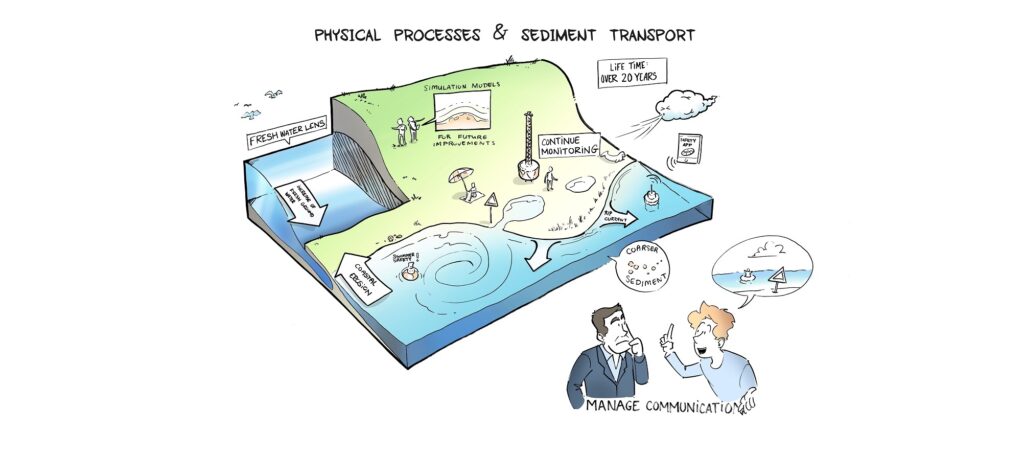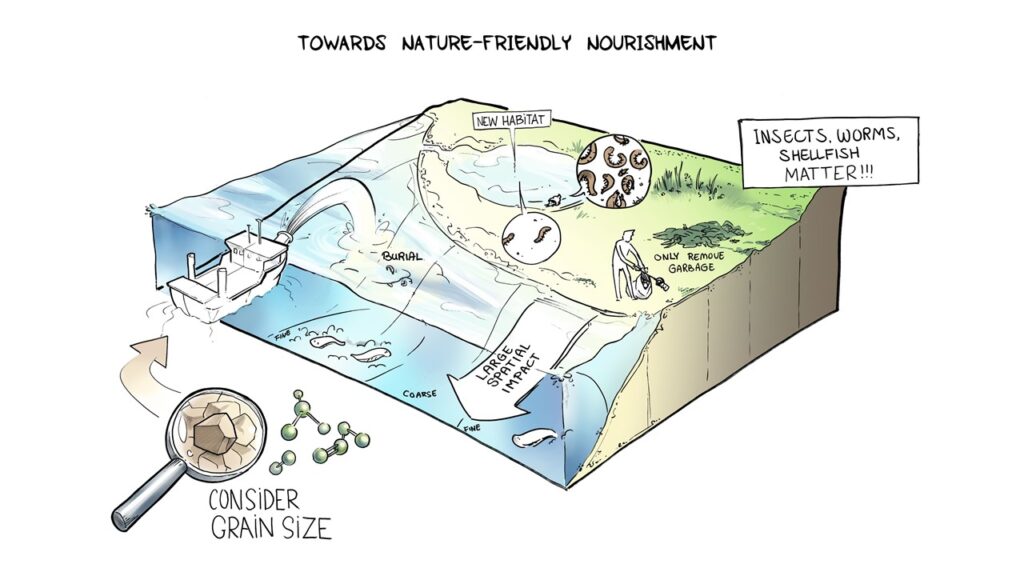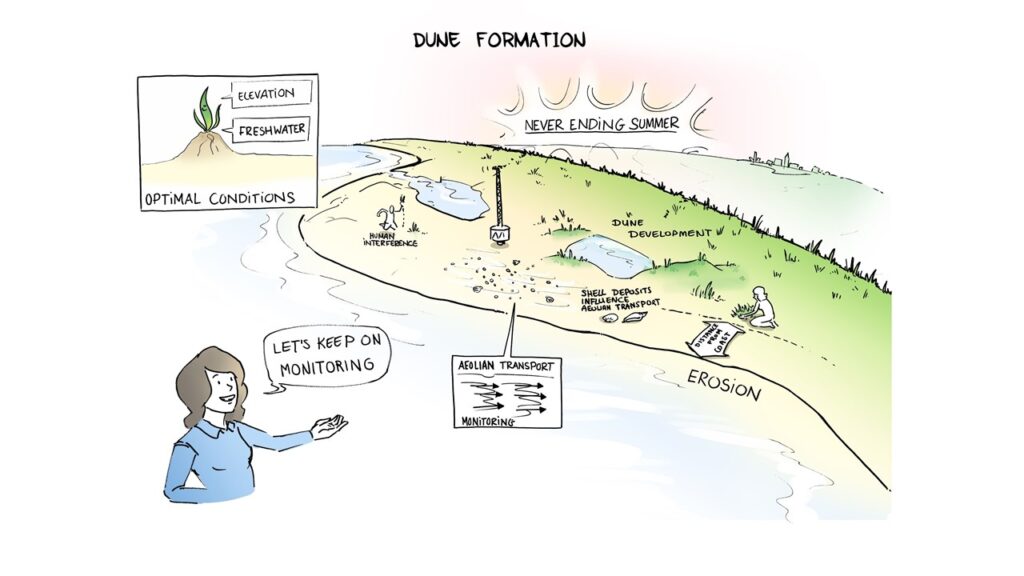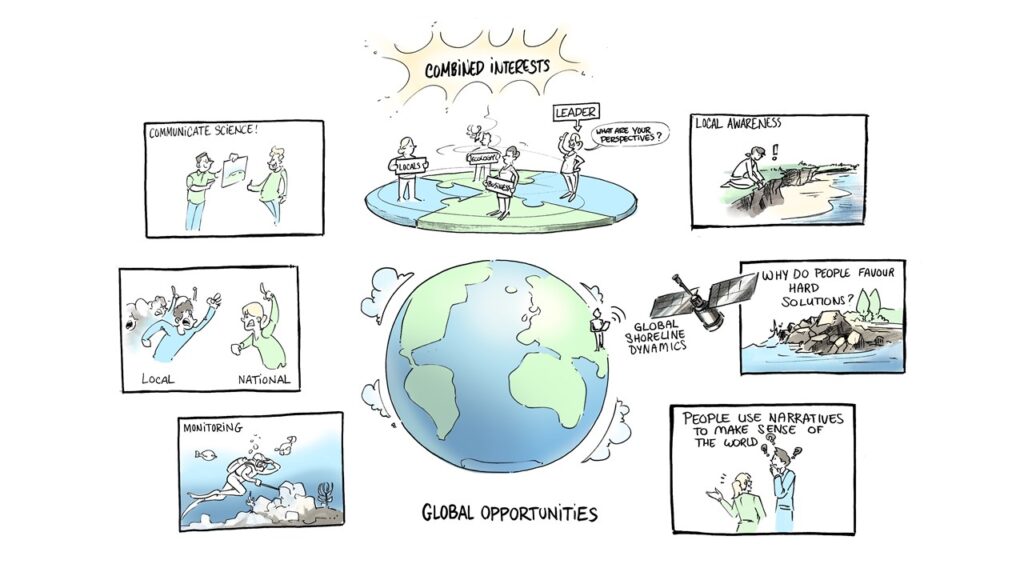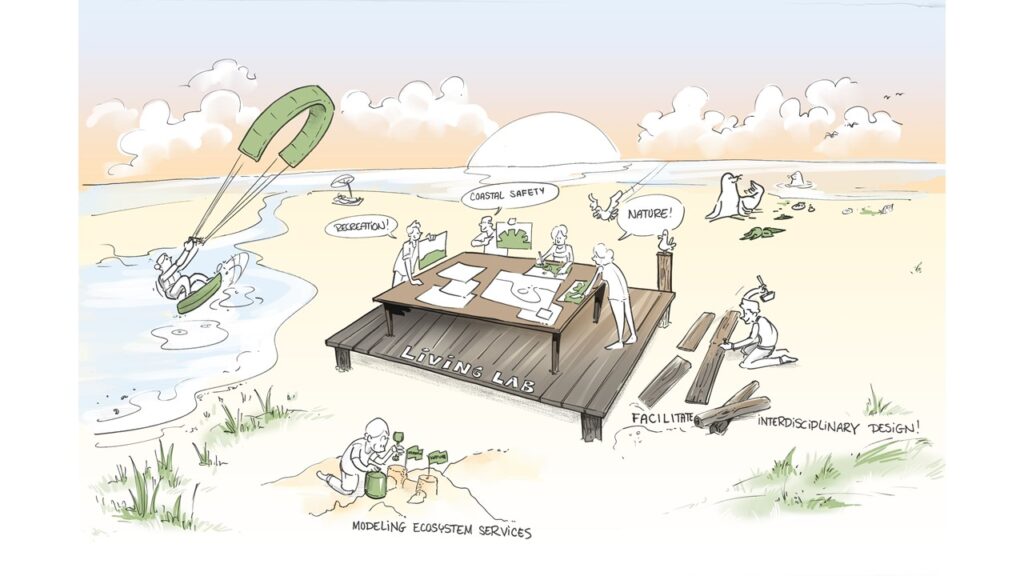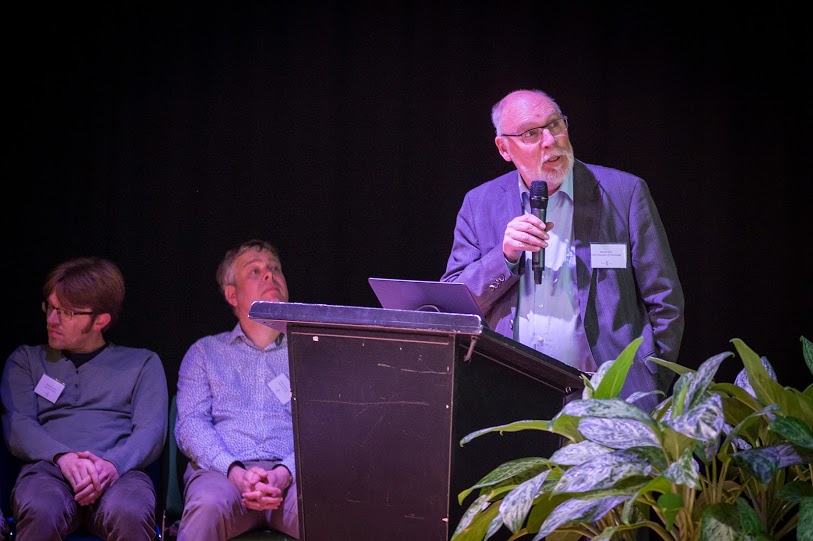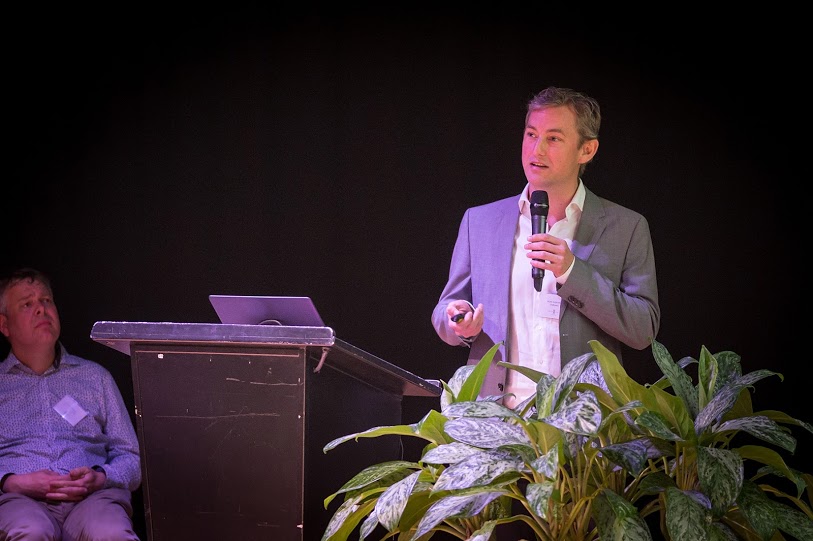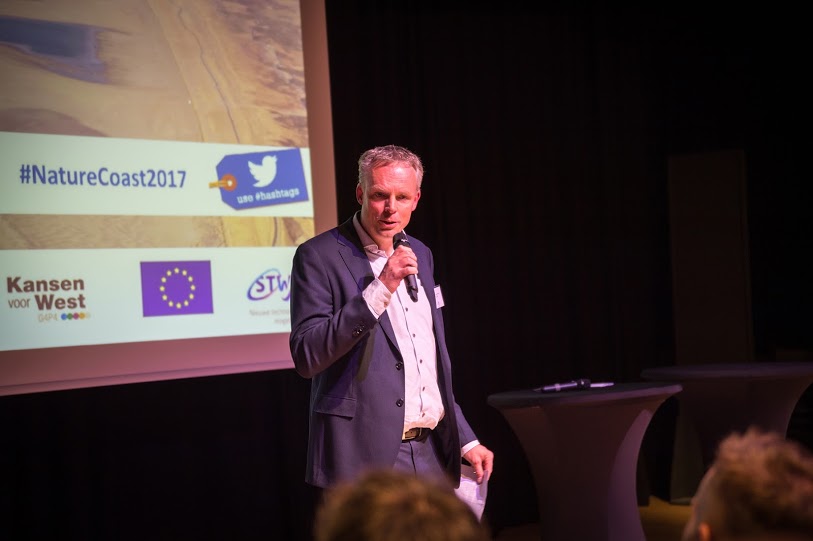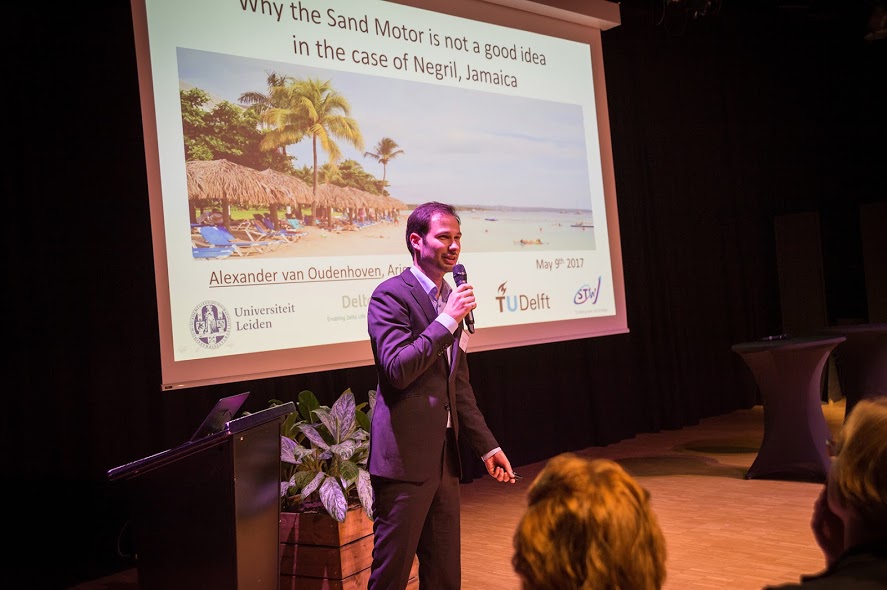How can knowledge about a Dutch Sand Motor help to combat beach erosion in Jamaica? And why did flatfish flourish during the first two years after its construction? These and other questions were answered by twelve PhD candidates and three postdocs during the NatureCoast symposium. Scientists, engineers and decision makers discussed the first outcomes of the scientific research program around the Sand Motor.
NatureCoast started off four years ago, led by emeritus professor Hydraulic Engineering Marcel Stive (TU Delft), to gain insight into the integral behaviour and functioning of large-scale coastal beach nourishments . With the Sand Motor as a ‘Living Lab’, researchers from different scientific disciplines have gained knowledge about, among others, morphology, groundwater, geochemistry, ecology and governance.
The research team also assessed the opportunities to export the Sand Motor solution. For many coasts in the world it does not simply mean copy-pasting the Dutch Sand Motor: what works for the Netherlands might not work out as well in another country. Instead, NatureCoast aims at exporting gained knowledge to design a coastal defence solution that is tailored to the local context.
In Sweden, for instance, sand is generally not the favoured material for coastal reinforcement, as PhD candidate Lotte Bontje (TU Delft) found. She analysed narratives of coastal reinforcement in Sweden and compared them to those of the Dutch Sand Motor. The Swedish narratives indicate that Swedish decision makers attach great importance to preserving nature, which tends to make them more hesitant towards sandy solutions. NatureCoast findings suggest, however, that sandy solutions like the Sand Motor can contribute to the creation of unique habitats, and that beach nourishments are generally more nature-friendly than traditional hard infrastructure.
Relating to the frames and ideas of key stakeholders is pivotal for effective communication
Support for a certain type of coastal reinforcement is also a matter of framing, which is a research subject of Bontje’s fellow PhD candidate Ewert Aukes (Twente University). Relating to the frames and ideas of key stakeholders is pivotal for effective communication about and, ultimately, gaining broad support for any policy decision. Seemingly conflicting aims, such as preserving nature and enhancing coastal safety and recreation, can then be combined into a design that serves multiple goals.
Jaap Flikweert, consultant with Royal Haskoning DHV, provided another interesting case during the symposium. Flikweert worked together with NatureCoast researchers towards a design for a British Sand Motor, which will most likely be constructed in 2018. However, the design did not come about easily. ‘Finding alternative ways for coastal protection has always been central to Dutch national policy, with the construction of the Sand Motor as a relatively logical consequence. In England we first have to prove that the Sand Motor is the best solution. In addition, land owners often have to pay for coastal defence themselves, which further adds to the problem,’ according to Flikweert.
A third case involves the eroding beach of Negril, Jamaica. By request of local hotel owners, NatureCoast postdocs Arjen Luijendijk (TU Delft) and Alexander van Oudenhoven (Leiden University) have been providing advice about coastal defence since 2014. Luijendijk and van Oudenhoven have, among others, spoken out against the planned construction of a concrete breakwater, a plan which has been abandoned recently. Based on their experiences with NatureCoast, they have suggested a nature-friendly and multifunctional solution to combat Negril’s eroding beaches, but also pleaded for extensive monitoring of the current situation.
In the year to come, Luijendijk and van Oudenhoven will continue to work on integrating the knowledge gained from different scientific disciplines, now led by the recently appointed professor Hydraulic Engineering Stefan Aarninkhof (TU Delft).
NatureCoast has generated a new type of researcher
The first tangible result of this integration and interdisciplinary collaboration has already become apparent: ‘NatureCoast has generated a new type of researcher: one who knows the practical context of their work, who looks beyond traditional boundaries and who combines knowledge from different disciplines to come up with surprising new insights,’ concluded van Oudenhoven during the closing session of the symposium.
NatureCoast is financially supported by NWO, EcoShape and others. The Universities of Delft, Wageningen, Twente, Utrecht, Leiden, NIOZ and VU University of Amsterdam have worked together in this project.

